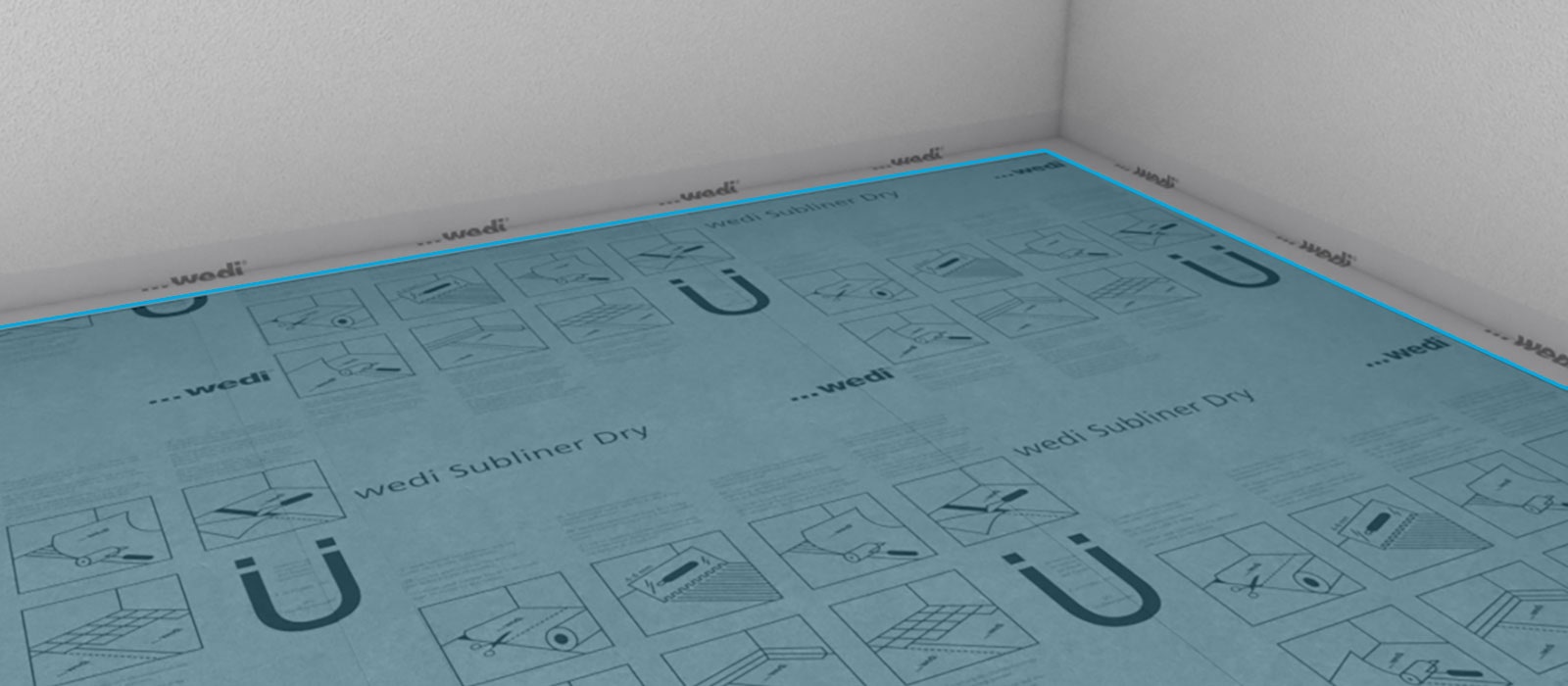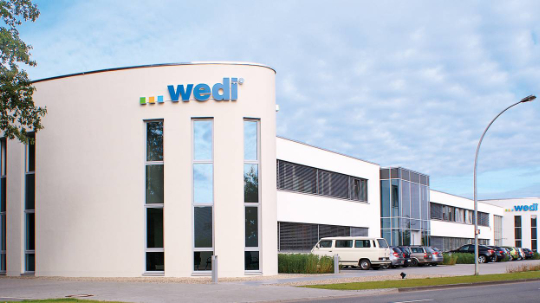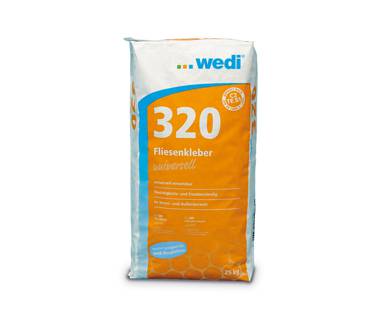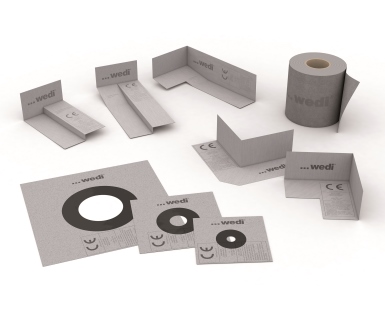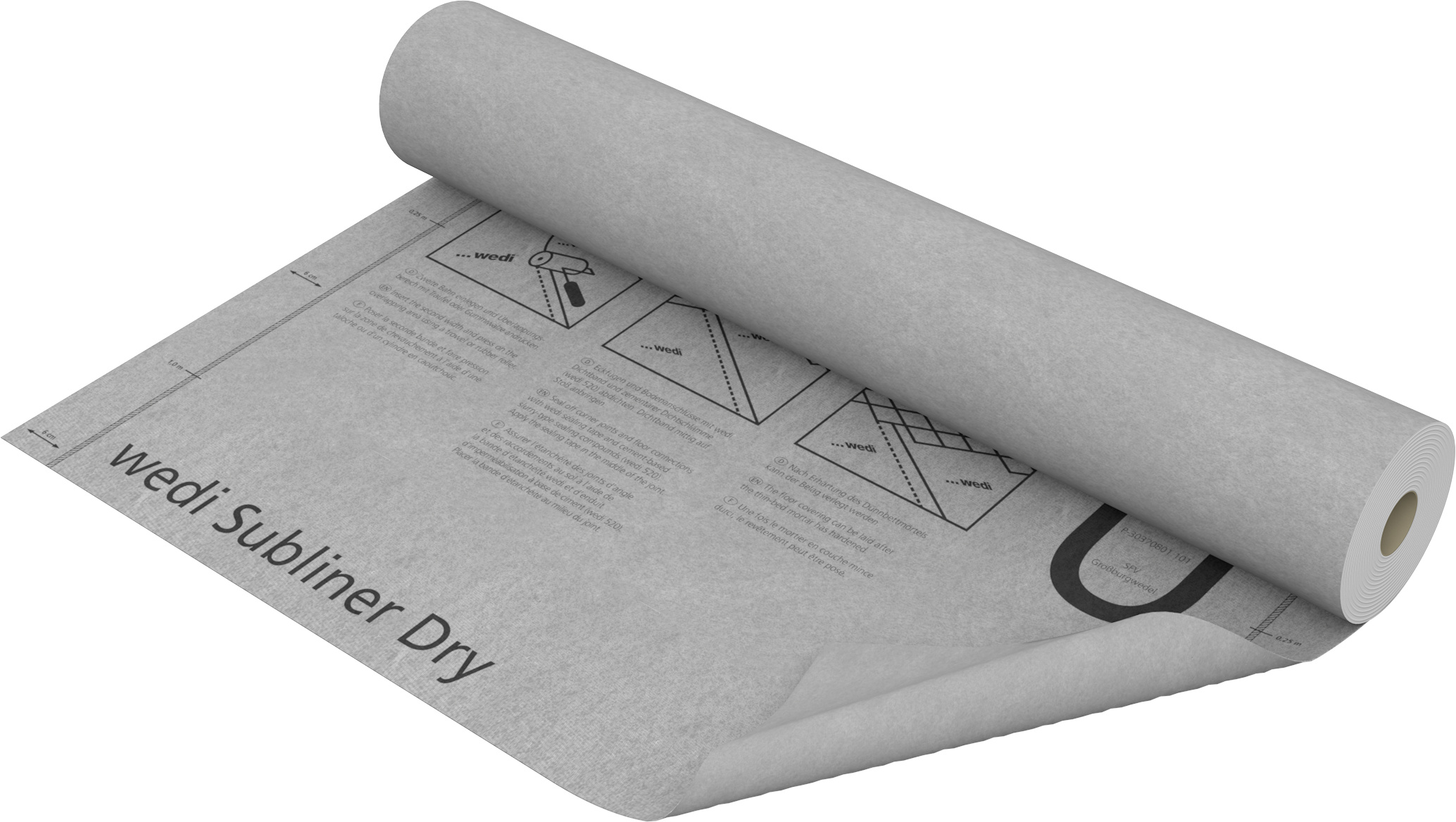Subliner Dry
„Sealing – waterproof and crack-bridging.“
Product information
Thin-layer, crack-bridging sealing membrane made from highly tear-resistant polyethylene film that ensures excellent adhesion of tile-setting compounds thanks to its special fleece layer on each side. This product can be used with ceramic tiles and slabs and with natural stone cladding for internal walls and floors to provide quick sealing for projects with a tight deadline.
All advantages at a single glance
Product video: Subliner Dry
Product information
Thin-layer, crack-bridging sealing membrane made from highly tear-resistant polyethylene film that ensures excellent adhesion of tile-setting compounds thanks to its special fleece layer on each side. This product can be used with ceramic tiles and slabs and with natural stone cladding for internal walls and floors to provide quick sealing for projects with a tight deadline.
All advantages at a single glanceProduct video: Subliner Dry
Technical properties - sealing membrane
| Material base | Polyethylene film with fleece layer on both side |
| Membrane colour | grau |
| Membrane width | 1 m |
| Membrane length | 5 m, 30 m |
| Membrane thickness | 0,51 mm |
| Weight | 298 g/m2 |
| Processing temperature | +5°C to +30°C |
| Temperature resistance | -30°C to +90°C |
| Waterproof | see general building code test certificate |
| Diffusion equivalent air layer thickness (sd) | approx. 85 m |
| Fire behaviour EN 13501 | E |
Areas of use wedi Subliner Dry
wedi Subliner Dry is a membrane sealing system for humid areas with moderate load, i.e. moisture exposure class A0 as per the ZDB data sheet; this includes, but is not limited to:
- Domestic bathrooms
- Hotel bathrooms
With test certificate under building regulations, it is approved for use in forming a composite sealing layer in high-load wet areas of load classes A and C; this includes, but is not limited to:
- Shower systems
- Swimming pool surrounds
- Commercial kitchens and laundries
In areas requiring technical approval, only components verified with the system should be used. Corresponding information is included in the general test certificate under the building regulations.

